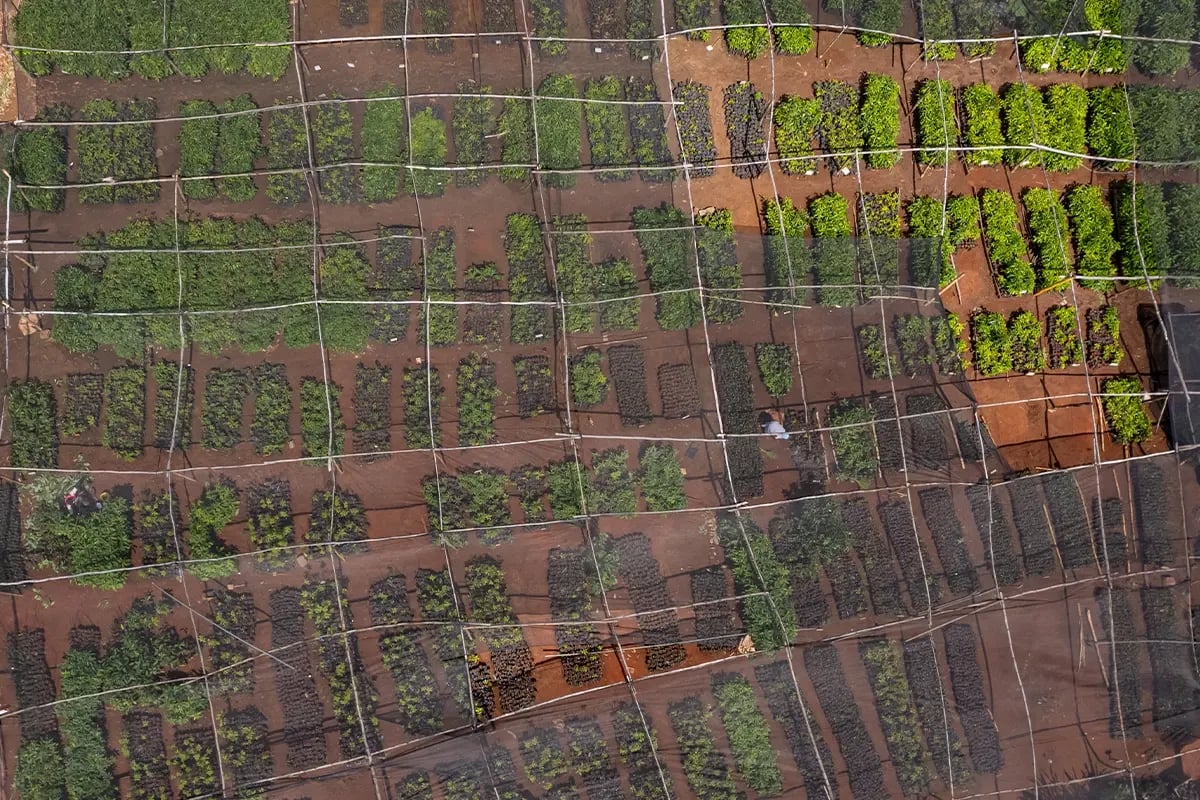Ripstar, a leading action sports travel company based in Amsterdam and celebrating its 35th anniversary this year, isn’t just about chasing the perfect wave—it’s about doing so responsibly. Specialising in high-end surf, snow, and kite camps, instructor courses, and exclusive group trips, Ripstar connects adventure-seekers with the world's most stunning natural environments. But with that privilege comes responsibility.
 A landscape photo of a group of surfers surfing along an ocean shore. AI generated picture.
A landscape photo of a group of surfers surfing along an ocean shore. AI generated picture.
For companies that rely on nature to thrive, protecting the very landscapes that fuel their business isn’t just a choice—it’s a necessity. More than ever, businesses are expected to take ownership of their environmental impact. Compensating for your carbon footprint is not just an ethical move; it’s a strategic one that future-proofs your company in a rapidly evolving, sustainability-driven market. Ripstar understands this imperative and is leading by example by embedding sustainability into its core operations and partnering with DGB Group.
Sustainability at Ripstar: an interview
Can you tell us more about Ripstar and why sustainability is important to your company?
Ripstar is an action sports travel agency specialising in organising high-end snow, surf & kite camps, instructor courses, exclusive trips, and group travel. The mountains and the ocean are our playgrounds, and we love to share our passion for sports with our customers. It is in nature that we experience the most beautiful moments, and we want to be able to share those experiences for at least another 35 years! That's why sustainability is an important part of our business, and with proper guidelines, education, and management, we can make a difference. We want to lead by example and are hoping that other companies will follow.
Read more: Sustainability in food distribution: Squiby Foods' carbon footprint journey
What sustainability targets have you set, and how are you working towards achieving these sustainability targets?
In the past few years, we have already made some changes in the way we operate. First, we banned plastic water bottles from our camps, our merchandise became sustainably and fairly made, we opted for standard vegetarian meals with an opt-in for meat instead of the other way around, and a few years ago, we decided to compensate for all the CO₂ emissions from our touring cars. Last year, we decided we wanted to do even more and started collaborating with Protect Our Winters, the Surfrider Foundation, and DGB Group to calculate our CO₂-footprint. The goal is to get a better view of our CO₂-footprint and to explore whether we can become CO₂-neutral. We are also looking for opportunities to work towards becoming a 1% for the Planet company.
What motivated Ripstar to calculate and compensate for its carbon footprint with DGB Group?
By compensating for our touring car emissions, we are already accounting for a big amount of the emissions that a travel company has. Estimating that a travel company's touring car emissions make up about 50% of its total CO₂ emissions, we realised that becoming CO₂-neutral should be within our reach. We decided to compensate for our emissions through DGB, as we also partnered with DGB to calculate our footprint and thought it would be best to communicate and work with one partner in this regard.
Read more: How to reduce your business’ travel emissions through nature
What were your key considerations when selecting the Hongera Reforestation Project for your carbon compensation?
We communicated that we want to compensate for our CO₂ emissions from our touring cars and flights by planting trees. Therefore, we chose carbon units from the Hongera Reforestation Project. This project focuses on large-scale reforestation in Kenya, helping to restore degraded landscapes and empowering local communities through job creation and additional income streams. In the future, we are also open to compensating through other projects.
Read more: A firsthand look at DGB’s impact in Kenya
How does this initiative align with Ripstar's broader sustainability goals and values?
Compensation for all our CO₂ emissions from touring cars and flights already makes up for about 50% (estimate) of our total emissions. This is a great start, but we are currently looking into compensating the full 100% once the calculation of our CO₂ footprint has been finalised. The Hongera Reforestation Project is a good fit with our goals and values as it not only has an impact on climate but also supports the local population.
Read more: What makes DGB’s reforestation projects unique?
What message would you like to share with other businesses considering similar actions?
Ripstar has always been a company run by pioneers. We believe that you have to do the things that you believe in and be an example for your customers as well as other companies. Inspire others by taking a step in the right direction yourself!
Read more: Driving sustainability: How Beauchamps LLP leads with purpose in the legal industry
Investing in nature: how Ripstar is driving impact through the Hongera Reforestation Project
The Hongera Reforestation Project in Kenya is more than just tree planting—it’s a commitment to restoring ecosystems, supporting local communities, and driving meaningful environmental action. Like Ripstar, many businesses are now investing in nature-based solutions, recognising that sustainability isn't just about reducing harm but also actively regenerating the planet.
Read more: DGB’s Hongera Reforestation Project: 600 hectares and growing
Why does this matter? Businesses that depend on nature—whether for tourism, agriculture, or supply chains—must take steps to ensure the longevity of these vital ecosystems. Through large-scale reforestation efforts, the Hongera Reforestation Project is helping to restore degraded lands, reintroduce biodiversity, and create essential wildlife habitats.
 Drone photo of tree seedling nursery in Kenya. Hongera Reforestation Project, DGB.
Drone photo of tree seedling nursery in Kenya. Hongera Reforestation Project, DGB.
Beyond environmental benefits, the project is deeply tied to local communities, providing jobs, training, and seedlings that smallholder farmers can use to generate income. The trees planted as part of this initiative aren’t just absorbing carbon—they're fueling sustainable livelihoods.
More companies recognise that sustainability is not just about compliance or reputation—it’s a way to build resilience, attract conscious consumers, and ensure long-term growth. Ripstar’s partnership with DGB underscores the power of businesses in taking action for the planet.
Want to future-proof your business while making a real impact? Discover how your company can invest in nature-based solutions with DGB and take the first step toward a more sustainable future.






